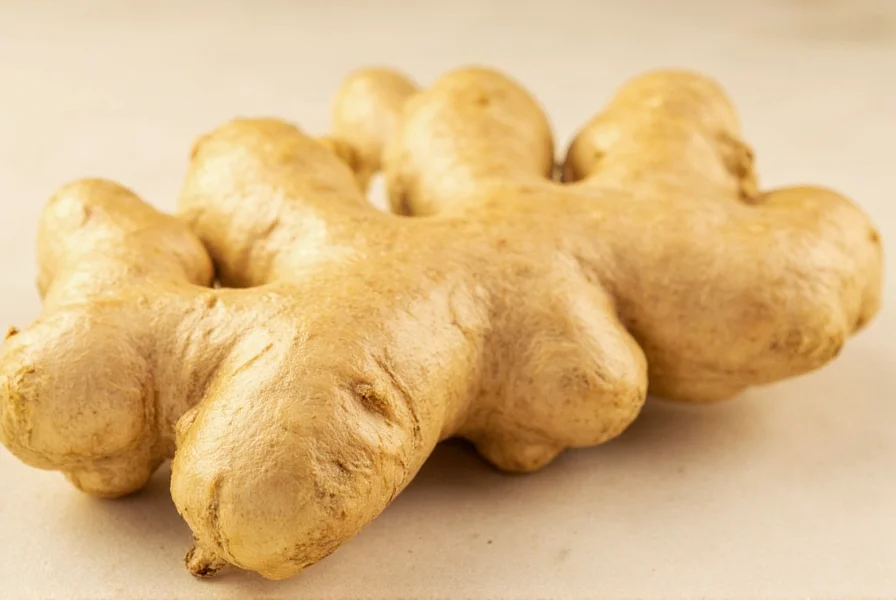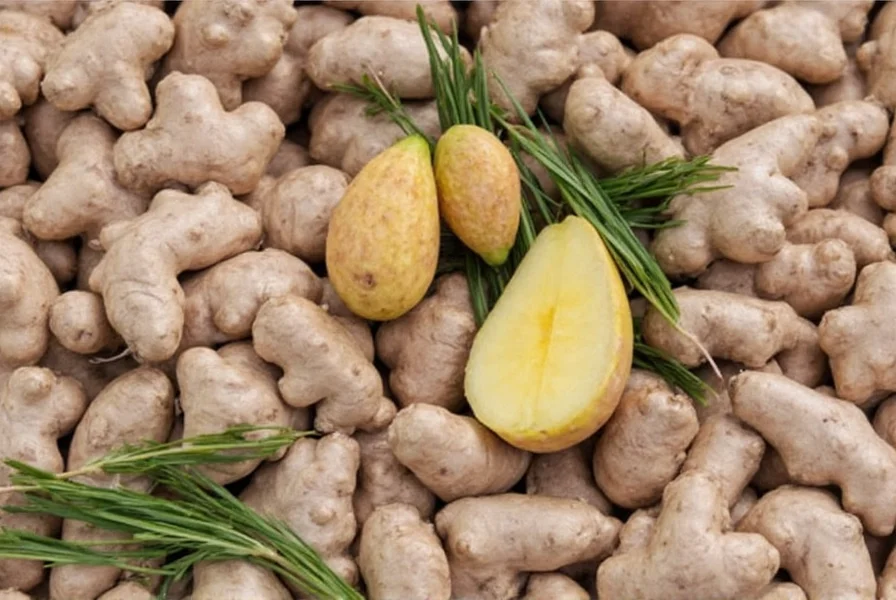Understanding GERD and Natural Remedies
Gastroesophageal Reflux Disease (GERD) affects approximately 20% of the U.S. population, causing uncomfortable symptoms like heartburn, regurgitation, and chest pain. Many individuals seek natural remedies alongside conventional treatments, with ginger emerging as a popular option. Unlike pharmaceutical interventions that primarily reduce stomach acid, natural approaches like ginger for GERD focus on addressing underlying digestive processes.
When exploring does ginger help with acid reflux, it's crucial to understand that GERD management requires a comprehensive approach. While proton pump inhibitors effectively reduce symptoms for many, they don't address the root causes of reflux. This gap has led patients to investigate complementary options like ginger root benefits for acid reflux, seeking solutions that support overall digestive health.
Ginger's Biological Properties Relevant to GERD
Ginger (Zingiber officinale) contains bioactive compounds including gingerols and shogaols, which demonstrate significant anti-inflammatory and antioxidant effects. Research published in the Molecular Research and Food Nutrition journal indicates these compounds may help protect the gastrointestinal lining from damage.
One key mechanism involves ginger's potential to accelerate gastric emptying. A study in the European Journal of Gastroenterology & Hepatology found that ginger reduced gastric emptying time by 25% compared to placebo, which could theoretically decrease the window for acid reflux episodes. This property makes ginger tea for GERD relief particularly interesting, as liquid forms may provide faster digestive benefits.
| Ginger Form | Recommended Dosage for GERD | Best Timing |
|---|---|---|
| Fresh ginger root | 0.5-1.5 grams daily | 30 minutes before meals |
| Ginger tea | 1-2 cups daily | Between meals, not before bed |
| Standardized supplements | 250-500 mg, 2-3 times daily | With food, consult physician first |
Scientific Evidence on Ginger and Acid Reflux
The research on scientific evidence on ginger and GERD presents a nuanced picture. A 2021 systematic review in Complementary Therapies in Medicine analyzed 12 clinical trials and concluded that while ginger shows promise for digestive health, high-quality studies specifically examining GERD outcomes remain scarce.
Notably, a randomized controlled trial published in Anaesthesia & Analgesia found that 1.2 grams of ginger reduced postoperative nausea more effectively than placebo, suggesting potential benefits for upper gastrointestinal discomfort. However, this study didn't specifically measure GERD symptoms. The limited research on ginger supplements for acid reflux management indicates potential benefits but emphasizes the need for larger, GERD-specific clinical trials.
It's important to recognize that individual responses vary significantly. While some patients report symptom improvement with ginger, others experience worsened heartburn. This variability likely relates to GERD subtypes and individual digestive physiology.
Practical Application: Using Ginger for GERD Symptoms
For those interested in trying ginger as part of their natural remedies for GERD symptoms, proper implementation matters. Start with small doses to assess tolerance—many find that 1/4 teaspoon of fresh grated ginger in warm water before meals provides gentle support without triggering symptoms.
When preparing ginger tea for GERD relief, use fresh ginger rather than powdered forms, which may contain additives. Steep 1-2 inches of sliced ginger in hot water for 5-10 minutes. Avoid adding citrus or mint, which can exacerbate reflux in some individuals. The optimal timing appears to be 30-60 minutes before meals to support digestive preparation.
Those considering supplements should look for standardized extracts containing 5% gingerols and consult their healthcare provider about potential interactions. Remember that how to use ginger for heartburn effectively requires personalization—what works for one person may not work for another.
Potential Risks and Considerations
Despite its natural origin, ginger isn't risk-free for GERD patients. Some individuals report worsened symptoms, possibly because ginger can stimulate gastric acid production in certain digestive systems. Those with erosive esophagitis should exercise particular caution.
Significant medication interactions require attention. Ginger may enhance the effects of blood thinners like warfarin and interact with diabetes medications by lowering blood sugar. The Journal of Agricultural and Food Chemistry reports that ginger's antiplatelet effects could increase bleeding risk when combined with NSAIDs.
Pregnant women with GERD should consult their obstetrician before using therapeutic doses of ginger, as high amounts might affect fetal development. Those with gallstones should also proceed cautiously, as ginger may increase bile production.

Integrating Ginger into Comprehensive GERD Management
Ginger works best as part of a multifaceted approach to GERD management. Combine ginger use with evidence-based lifestyle modifications:
- Maintain healthy body weight (even 5-10% reduction improves symptoms)
- Elevate head of bed 6-8 inches during sleep
- Avoid eating within 3 hours of bedtime
- Identify and eliminate personal trigger foods
- Practice stress reduction techniques
Consider ginger as a complementary approach rather than a standalone solution. When evaluating ginger root benefits for acid reflux, remember that what works for occasional heartburn may differ from what helps chronic GERD. Track your symptoms carefully when introducing ginger to determine if it provides personal benefit.
Always prioritize medical guidance—don't discontinue prescribed GERD medications without consulting your physician. If you experience persistent symptoms despite lifestyle changes and natural approaches, seek professional evaluation to rule out complications like Barrett's esophagus.
Conclusion: A Balanced Perspective on Ginger for GERD
The potential of ginger for GERD relief represents an interesting intersection of traditional wisdom and emerging science. While current evidence suggests ginger may benefit some individuals through its anti-inflammatory and digestive properties, the research remains preliminary. Those considering ginger as part of their GERD management strategy should approach it as one component of a comprehensive plan developed with healthcare professionals.











 浙公网安备
33010002000092号
浙公网安备
33010002000092号 浙B2-20120091-4
浙B2-20120091-4